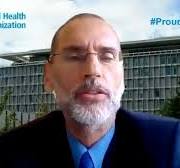As the world commemorates World Health Day 2025, the United Nations has issued a stark warning about the potential reversal of progress in reducing maternal and newborn deaths due to cuts in humanitarian aid. The theme for this year, Healthy Beginnings, Hopeful Futures, underscores the urgent need to prioritize maternal and newborn health amidst growing global challenges.
Recent statistics paint a grim picture of maternal and newborn survival rates. Annually, nearly 300,000 women die from pregnancy-related complications, while over 2 million newborns lose their lives within the first month of birth. An additional 2 million babies are stillborn figures that translate to one preventable death every seven seconds. These tragedies disproportionately affect low-income countries and conflict-ridden regions, where access to quality healthcare remains a luxury rather than a right.
The UN has highlighted that four out of five countries are off track in meeting global targets for maternal survival by 2030, with one in three failing to reduce newborn mortality rates. Humanitarian crises, climate change, and funding rollbacks have further exacerbated these challenges, leaving millions of women and babies vulnerable to life-threatening risks.
Dr. Anshu Banerjee, Director of Maternal, Newborn, Child and Adolescent Health at WHO, emphasized the critical importance of sustained investment in maternal health services. He noted that many life-saving interventions—such as emergency obstetric care, prenatal screenings for complications, and specialized care for preterm babies are now at risk due to funding constraints. These services are essential as most maternal and newborn deaths occur during or shortly after childbirth.
The UN is calling on governments, donors, and health organizations to reinvigorate efforts to address this preventable crisis. Key recommendations include expanding access to skilled healthcare providers during childbirth, increasing antenatal care visits, and ensuring postnatal support within two days of delivery. Additionally, empowering women through education and access to reproductive health services is seen as vital for long-term improvements.
In fragile settings like Syria and Sudan, WHO has already implemented mobile clinics and emergency health posts to provide maternity care to displaced populations. However, these initiatives require robust financial backing to maintain their impact.
World Health Day serves as a reminder that maternal health is not just a medical issue but a fundamental human right. The UN’s call for action is a plea for solidarity—to ensure that every woman and baby can survive and thrive regardless of their circumstances. Without immediate intervention, decades of progress risk being undone, leaving millions of families in despair.
